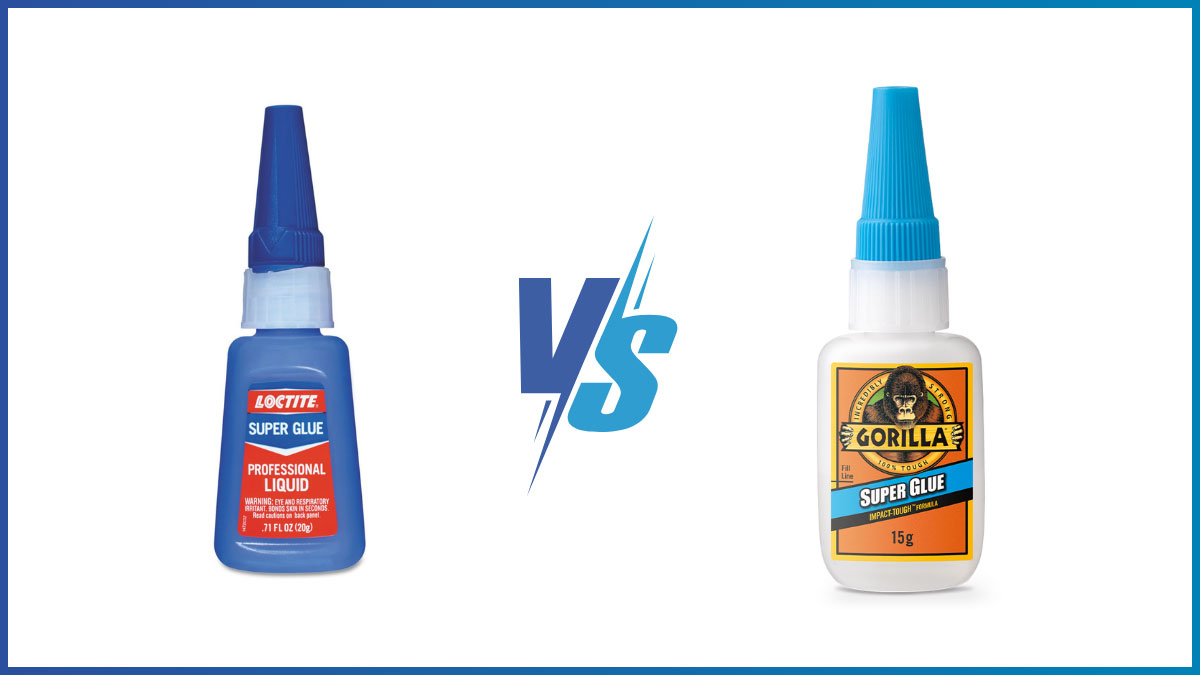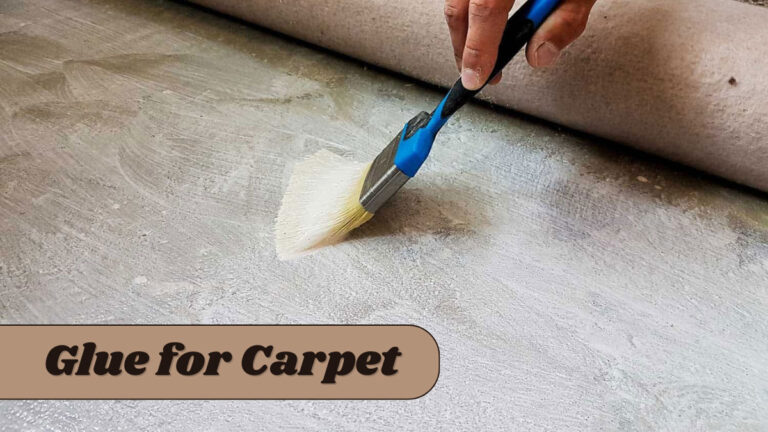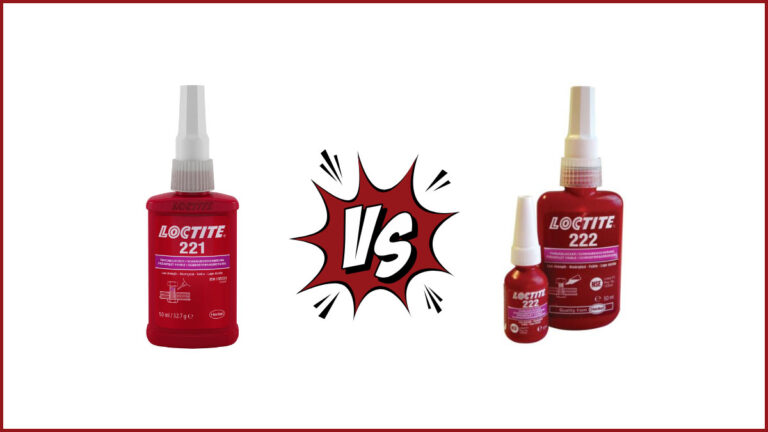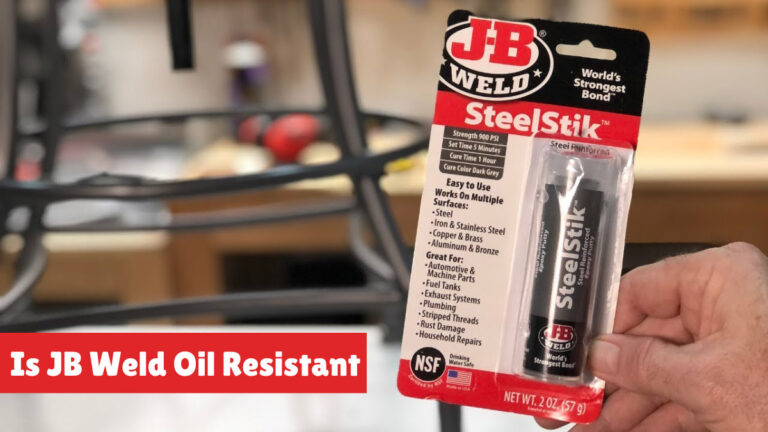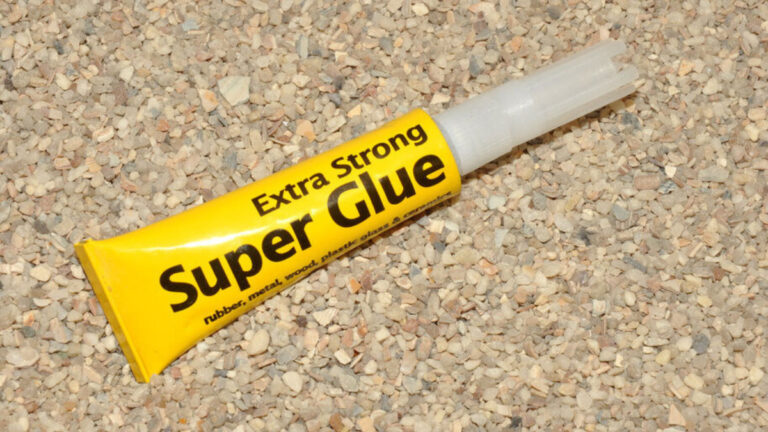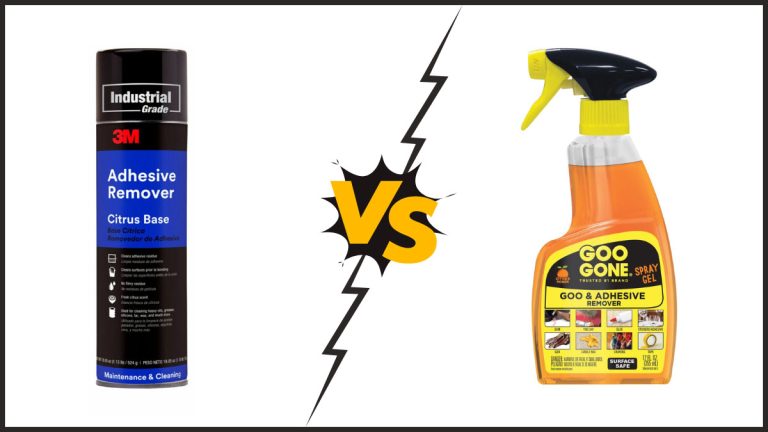Loctite Super Glue vs Gorilla Super Glue: Comparison & Guide
When you’re faced with a broken item and need a quick fix, super glue is often the go-to solution. But with so many options on the market, how do you choose the right one? Two of the most popular brands are Loctite Super Glue and Gorilla Super Glue. Each promises a strong bond, but they have their own unique features and benefits.
In this text, we’ll compare Loctite Super Glue and Gorilla Super Glue to help you decide which is best for your needs. Whether you’re repairing a cherished keepsake or tackling a DIY project, knowing the strengths and weaknesses of each can make all the difference.
Key Takeaways
- Brand Backgrounds: Loctite Super Glue has been on the market since the 1960s, known for strong, versatile bonds on metal, wood, plastic, and glass, while Gorilla Super Glue has gained popularity since the early 2000s for its robustness and ease of use on similar materials.
- Bonding Strength: Loctite excels on metal surfaces with an impressive bonding strength of 72.4 pounds, whereas Gorilla performs stronger on wood with a bonding strength of 241.2 pounds.
- Versatility and Drying Time: Both glues offer quick drying times of 10-45 seconds and perform well on multiple materials, but Gorilla is particularly effective on porous surfaces like wood, while Loctite is ideal for smooth surfaces like metal.
- Ease of Use: Loctite features precision dispensers for accurate application, making it user-friendly for detailed tasks. Gorilla provides anti-clog caps for a mess-free, consistent application.
- Durability and Environmental Resistance: Gorilla Super Glue is optimized for both indoor and outdoor use due to its resistance to temperature and weather changes. Loctite, though durable, is better suited for indoor applications.
- User Reviews and Common Complaints: Users appreciate Loctite for its strong metal bonds and precise application but note occasional issues with quick drying and bond longevity. Gorilla is praised for wood bonding and ease of use, with some complaints about performance on metal and potential clogging issues.
Overview of Loctite Super Glue and Gorilla Super Glue
History and Background
Loctite Super Glue
Loctite Super Glue, developed by Henkel, entered the market in the 1960s. It’s renowned for its strong bonding properties and versatility. Designed initially for industrial applications, it quickly found a home in consumer markets due to its effectiveness on a wide range of materials like metal, wood, plastic, and glass.
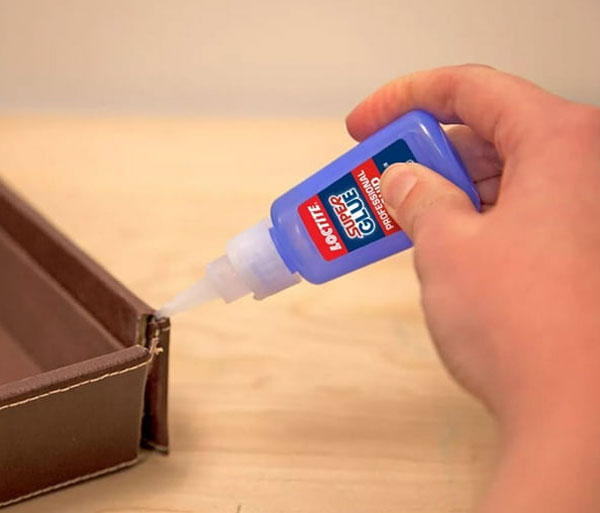
Gorilla Super Glue
Gorilla Super Glue, a product of Gorilla Glue Company, launched in the early 2000s. It gained popularity due to its robust performance and ease of use. Known for its durable bond and availability in different forms, it’s favored for both household repairs and professional applications.
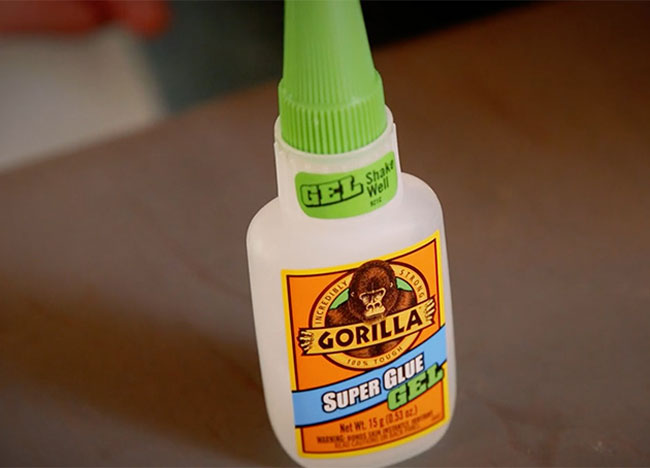
Common Uses
Loctite Super Glue
- Metal: Effective for repairing metal fixtures and automotive parts.
- Wood: Ideal for wooden furniture and decor repairs.
- Plastic: Works well on most plastics, except polyethylene and polypropylene.
- Glass: Suitable for fixing glass items and ceramics.
- Versatility: Bonds wood, metal, ceramic, and some plastics.
- Ease of Use: Available in both gel and liquid forms, making it adaptable for various tasks.
- Quick Repairs: Handy for on-the-spot fixes due to its rapid bonding time.
| Feature | Loctite Super Glue | Gorilla Super Glue |
|---|---|---|
| Composition | Cyanoacrylate-based | Cyanoacrylate-based |
| Bonding Time | 15-30 seconds | 10-45 seconds |
| Full Cure Time | 24 hours | 24 hours |
| Applicator | Ultra Gel Control with side-squeeze dispenser | Standard and gel, brush-on versions |
| Strength on Wood | 200+ pounds | Comparable, data not specified |
| Strength on Metal | 72 pounds | Comparable, data not specified |
| Ideal for | Metal, wood, plastic, glass | Wood, metal, ceramic, some plastics |
Comparison of Features
Examining the features of Loctite Super Glue and Gorilla Super Glue provides clear insights to support your selection process.
Bonding Strength
Both glues deliver impressive bonding strengths but showcase differences in their performance on various materials.
- Loctite Super Glue: Exhibits exceptional bonding strength, especially on metal surfaces. Testing reveals an average bonding strength of 72.4 pounds on metal and 231.4 pounds on wood.
- Gorilla Super Glue: Also performs strongly but falls slightly short on metal compared to Loctite. It averages 56.6 pounds on metal and 241.2 pounds on wood.
Versatility
Versatility remains a crucial aspect, determining how effectively a glue works on different surfaces.
- Loctite Super Glue: Functions well on surfaces such as metal, wood, glass, and plastic, though it has limitations on glazed surfaces and polyethylene plastic.
- Gorilla Super Glue: Highly versatile, efficiently bonding wood, metal, glass, and plastic. Its performance on porous materials like wood stands out.
Drying Time
Effective drying time is essential for convenience and quick repairs.
- Loctite Super Glue: Typically dries in about 15 to 30 seconds, offering a quick-setting solution for various applications.
- Gorilla Super Glue: Features a comparable drying time, often drying within 10 to 45 seconds, depending on the material.
Ease of Use
Ease of use often determines the practicality of a glue for day-to-day or professional tasks.
- Loctite Super Glue: Equipped with innovative dispensers and nozzles that allow precision application, making it user-friendly.
- Gorilla Super Glue: Comes with an anti-clog cap and a user-friendly design that ensures easy, precise application without mess.
| Feature | Loctite Super Glue | Gorilla Super Glue |
|---|---|---|
| Bonding Strength | 72.4 lbs on metal, 231.4 lbs on wood | 56.6 lbs on metal, 241.2 lbs on wood |
| Versatility | Metal, wood, glass, plastic | Wood, metal, glass, plastic (porous surfaces favored) |
| Drying Time | 15-30 seconds | 10-45 seconds |
| Ease of Use | Precision dispensers | Anti-clog cap, precise application |
Choosing between Loctite Super Glue and Gorilla Super Glue involves considering your specific needs and the materials you’ll be working with. Both offer strong and versatile bonding but cater to slightly different use cases and preferences.
Performance on Different Materials
Selecting the right super glue involves understanding how it interacts with various materials. Both Loctite Super Glue and Gorilla Super Glue have their strengths and slight differences when used on wood, metal, plastic, ceramic, glass, and rubber.
Wood
Loctite Super Glue Gel: Loctite’s gel formula works well on wood surfaces thanks to its non-drip consistency. Some users, but, have reported inconsistent adhesion, where it didn’t hold as expected.
Gorilla Super Glue Gel: In tests, Gorilla Super Glue Gel demonstrated excellent performance on wood, holding an average of 241.2 pounds in strength tests. This makes it a robust choice for wood applications.
Metal
Loctite Super Glue Gel: Loctite outperforms on metal, offering a strong bond that resists water, impact, and chemicals. This makes it ideal for metal repairs and assemblies.
Gorilla Super Glue Gel: Gorilla Super Glue Gel works on metal but doesn’t match the performance of Loctite on metal surfaces. Tests show Gorilla’s bond strength on metal is lower compared to Loctite.
Plastic
Loctite Super Glue Gel: Effective on many plastics, Loctite forms a strong bond. Its precision applicator allows for control during application, reducing mess.
Gorilla Super Glue Gel: Gorilla performs well on plastic too, particularly on porous plastic surfaces. Its thicker consistency helps prevent dripping, which is beneficial for vertical surfaces.
Ceramic
Loctite Super Glue Gel: Loctite’s gel formula bonds strongly to ceramic. It works well for repairing ceramic items like mugs and decorative pieces, offering durability.
Gorilla Super Glue Gel: Gorilla Super Glue Gel also performs well on ceramic. It’s commonly used to fix broken tiles and crockery due to its strong hold and quick drying time.
Glass
Loctite Super Glue Gel: Loctite can bond glass effectively, creating a clear and strong bond. It’s suitable for fixing glass items like vases and glassware.
Gorilla Super Glue Gel: Gorilla Super Glue Gel works on glass, yet Loctite generally provides a clearer finish. Gorilla is still reliable for glass repairs but might not be as transparent.
Rubber
Loctite Super Glue Gel: Loctite bonds well with many types of rubber, though certain rubber variants may require a specialized adhesive.
Gorilla Super Glue Gel: Gorilla also works on rubber, especially with its flexible bond suitable for items that will be moved or stretched.
| Material | Loctite Super Glue Gel | Gorilla Super Glue Gel |
|---|---|---|
| Wood | Good, sometimes inconsistent | Excellent, 241.2 pounds |
| Metal | Excellent, strong and resistant | Good, but less than Loctite |
| Plastic | Strong bond, precision control | Strong, good for porous plastic |
| Ceramic | Durable bond, great for repairs | Strong, quick drying |
| Glass | Clear, strong bond | Reliable, but less clear |
| Rubber | Good on many types | Good, flexible bond |
Durability and Longevity
When choosing between Loctite Super Glue and Gorilla Super Glue, you should consider durability and longevity. Both brands offer exceptional adhesive properties, but there are key differences that could influence your decision.
Indoor vs Outdoor Use
Gorilla Super Glue Gel:
Gorilla Super Glue Gel excels in both indoor and outdoor environments. It’s formulated to withstand inclement weather and extreme temperatures, making it versatile and reliable. This glue bonds efficiently to various materials like wood, metal, ceramic, stone, leather, fabric, rubber, paper, and most plastics, ensuring a strong hold under varied conditions.
Loctite Super Glue Gel Control:
Loctite Super Glue Gel Control also provides strong performance but is tailored more towards indoor use. While offering impressive durability and resistance to wear, shock, impact, and vibration, Loctite’s formula is geared towards environments that don’t frequently face weather challenges. It bonds effectively to materials including plastic, wood, metal, fabric, and ceramic, making it ideal for numerous indoor applications.
Water and Temperature Resistance
- Gorilla Super Glue Gel
- Water Resistance: Handles occasional water exposure, not fully waterproof.
- Temperature Resistance: Performs well in a temperature range of -40°F to 200°F (-40°C to 93°C).
- Loctite Super Glue Gel Control
- Water Resistance: Also resistant to occasional water exposure but not entirely waterproof.
- Temperature Resistance: Best suited for standard home temperatures and environments.
Bonding Strength Comparison
In a comparative test involving bonding strength on metal:
| Glue Type | Bonding Strength on Metal (lbs) |
|---|---|
| Loctite Super Glue Gel Control | 72.4 |
| Gorilla Super Glue Gel | 56.6 |
Loctite proves stronger on metal, averaging 72.4 pounds before the bond fails, compared to Gorilla’s 56.6 pounds.
Material Compatibility:
- Gorilla Super Glue Gel:
- Better for rough, porous surfaces.
- Examples: wood furniture, rubber seals.
- Loctite Super Glue Gel Control:
- Superior on smooth surfaces.
- Examples: metal repairs, ceramic fixes.
- Choose Gorilla Super Glue Gel for versatile indoor and outdoor use with strong impact resistance.
- Use Loctite Super Glue Gel Control for heavy-duty indoor repairs on metals and smoother surfaces.
- Consider specific environmental exposures and material types to ensure optimal adhesion and durability from your chosen adhesive.
By weighing these factors, you’ll be better equipped to select the right super glue for your needs, ensuring robust and reliable bonds every time.
Safety and Environmental Considerations
When choosing between Loctite Super Glue and Gorilla Super Glue, consider the safety and environmental implications. Both products have unique characteristics that could affect their usage and disposal.
Toxicity
Loctite Super Glue
- Loctite Super Glue contains cyanoacrylate, a chemical that can cause skin and eye irritation. Fumes inhalation may be harmful and could cause respiratory issues. Use it in a well-ventilated area and avoid skin contact.
- Users report that Loctite Gel Super Glue emits fewer fumes and produces less dust compared to other brands, making it safer for immediate exposure concerns.
Gorilla Super Glue
- Gorilla Super Glue also uses cyanoacrylate, presenting similar toxicity risks. It can irritate the skin and eyes, and inhaling its fumes can be harmful.
- Some users have noted that Gorilla Super Glue tends to emit more fumes and produce more dust than Loctite, potentially increasing the risk of respiratory irritation.
Eco-friendliness
Loctite Super Glue
- Loctite Super Glue packaging generally includes recyclable materials. But, the adhesive itself must be disposed of as hazardous waste due to its chemical composition.
- Loctite is working towards more sustainable practices in manufacturing and packaging without compromising product quality.
Gorilla Super Glue
- Gorilla Super Glue packaging also often involves recyclable components. Like Loctite, the adhesive requires careful disposal to avoid environmental harm.
- Gorilla Glue Company emphasizes sustainability in its production processes, aiming to minimize the environmental impact of its products.
Summary
It’s crucial to consider both the safety and environmental impacts when selecting a super glue. Use Loctite in well-ventilated areas for lower immediate exposure risks due to fewer fumes and less dustiness. For Gorilla Super Glue, be cautious of the higher fume levels and ensure proper ventilation. Both products demand careful disposal and support sustainable practices to some degree in their packaging.
Price and Availability
Cost Analysis
When comparing the cost of Loctite Super Glue and Gorilla Super Glue, you’ll find both brands are competitively priced.
Loctite Super Glue
Loctite Super Glue Products:
- Loctite Ultra Gel Control Super Glue: Typically costs between $5 and $10 for a 4-gram bottle, depending on the retailer.
Gorilla Super Glue
Gorilla Super Glue Products:
- Gorilla Super Glue Gel: Usually ranges from $5 to $15 for a similar size bottle.
Where to Buy
Loctite Super Glue
- Major Retailers: Available at stores like The Home Depot and Ace Hardware.
- Online Retailers: Can be easily purchased on Amazon.
- Major Retailers: Found in stores such as Home Depot and Ace Hardware.
- Online Retailers: Available for purchase on Amazon.
User Experiences and Reviews
Users frequently share their experiences with Loctite Super Glue and Gorilla Super Glue, shedding light on their respective strengths and weaknesses.
Customer Satisfaction
Customer satisfaction varies between Loctite and Gorilla, largely due to their performance and usability. Here’s a detailed breakdown:
- Bonding Strength and Performance:
- Loctite Super Glue: Users appreciate its strong bond on metal surfaces. Loctite Ultra Gel Control Super Glue bonds in 15-30 seconds and cures fully within 24 hours. It’s especially effective on metal, wood, glass, and plastic.
- Gorilla Super Glue: This glue excels on wood surfaces, holding over 200 pounds according to tests. Although strong, it tends to perform less effectively on metal surfaces compared to Loctite.
- Ease of Use:
- Loctite Super Glue: The side-squeeze dispenser design of Loctite Ultra Gel Control is often commended for its precision, control, and mess-free application.
- Gorilla Super Glue: Gorilla Super Glue Gel features an anti-clog cap, providing ease of use and preventing glue from drying out.
Common Complaints
Even though their popularity, both glues have garnered some common complaints from users:
- Loctite Super Glue:
- Drying Speed: Occasionally, users find that Loctite dries too quickly, which can lead to application errors if precise placement isn’t achieved swiftly.
- Bond Longevity: In some cases, users mention that the bond might not hold up well under continuous stress or during high-impact use.
- Gorilla Super Glue:
- Performance on Metal: Users frequently note that Gorilla Super Glue’s performance on metal could be improved, highlighting weaker bonds compared to other materials.
- Clogging Issues: Even though the anti-clog cap, some users experience clogging over time, affecting the glue’s consistency and usability.
Overall Ratings
Across various review platforms, users rate both types of glues highly, with slight variations in their scores based on specific use cases:
| Glue Type | Average Rating | Top Strong Points | Common Issues |
|---|---|---|---|
| Loctite Ultra Gel Control | 4.5/5 | Precision, metal bonding | Quick drying, bond longevity |
| Gorilla Super Glue Gel | 4.4/5 | Wood bonding, ease of use | Performance on metal, clogging |
Understanding user experiences and reviews equips you with the knowledge to choose the best super glue for your particular needs. Both Loctite and Gorilla serve well in different scenarios, given their unique strengths and minor weaknesses.
Conclusion
Selecting the right super glue between Loctite and Gorilla hinges on your specific needs and the materials you’re working with. Loctite offers exceptional bonding strength, especially on metal and glass, making it ideal for precise and heavy-duty repairs. On the other hand, Gorilla’s versatility shines through on wood and porous surfaces, providing a robust bond across various applications.
Both brands come with unique features like Loctite’s precision dispensers and Gorilla’s anti-clog cap, enhancing ease of use. Consider the environmental conditions and safety aspects, as both glues have their own set of advantages and limitations in these areas. By understanding these differences, you can confidently choose the best super glue for your projects, ensuring strong and reliable bonds every time.
Frequently Asked Questions
What common materials can Loctite Super Glue bond with?
Loctite Super Glue can bond with various materials including metal, wood, plastic, and glass. It’s especially effective on metal and wood, making it ideal for a wide range of household repairs and DIY projects.
What types of surfaces does Gorilla Super Glue work best on?
Gorilla Super Glue works best on wood, metal, ceramic, and some plastics. It also performs well on porous surfaces, making it versatile for both household and professional applications.
How long does it take for Loctite Super Glue to dry?
Loctite Super Glue typically dries within 15 to 30 seconds. However, the full cure time may take longer depending on the materials and environmental conditions.
Is Gorilla Super Glue easier to use than Loctite Super Glue?
Both Gorilla and Loctite Super Glues are designed for ease of use. Loctite features precision dispensers, while Gorilla includes an anti-clog cap, making application straightforward and mess-free.
Can I use Loctite Super Glue for outdoor repairs?
Loctite Super Glue is primarily tailored for indoor applications but is resistant to occasional water exposure. For outdoor repairs, consider using Gorilla Super Glue due to its versatility in various environments.
Are there any safety concerns with using super glue?
Both Loctite and Gorilla Super Glues contain cyanoacrylate, which can cause skin and eye irritation and respiratory issues if inhaled. Always use these products in well-ventilated areas and follow safety guidelines on the label.
How do Loctite and Gorilla Super Glue compare in terms of cost?
Loctite Ultra Gel Control Super Glue typically costs between $5 and $10 for a 4-gram bottle, while Gorilla Super Glue Gel ranges from $5 to $15 for a similar size. Both are competitively priced and available at major retailers and online.
Which super glue is more durable?
In terms of durability, Loctite Super Glue is stronger on metal surfaces, making it suitable for heavy-duty indoor repairs. Gorilla Super Glue, on the other hand, excels on rough, porous surfaces and performs well in a wider temperature range.
How do users rate Loctite and Gorilla Super Glue?
Loctite Ultra Gel Control Super Glue has an average rating of 4.5/5, appreciated for its strong bond on metal and precision applicator. Gorilla Super Glue Gel scores 4.4/5, favored for its performance on wood and ease of use.
Which super glue is better for glass repairs?
Loctite Super Glue generally provides a clearer finish on glass compared to Gorilla Super Glue. If transparency is important, Loctite is the preferred choice for glass repairs.

